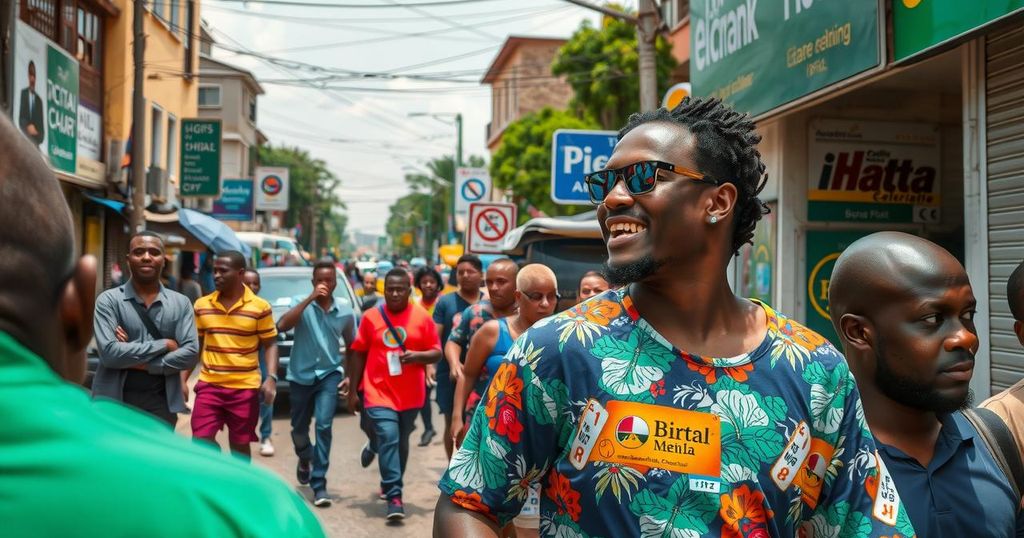Accra Residents Anticipate Close Contest in Ghana’s Presidential Election
Residents of Accra’s Odododiodio district prepare for a closely contested presidential election between NPP’s Mahamudu Bawumia and NDC’s John Mahama. Economic challenges like high inflation and joblessness weigh heavily on voters as they make their choices, influenced by both party loyalty and economic management capabilities. The Greater Accra region, known for its populous electoral base, stands as a critical battleground this election season, with both candidates presenting contrasting strategies for the nation’s recovery.
In the lead-up to Ghana’s presidential election scheduled for December 7, 2024, residents of Accra’s Odododiodio district are acutely aware of the significance of their votes. The contest is mainly between Mahamudu Bawumia, the candidate from the ruling New Patriotic Party (NPP), and John Mahama, representing the opposition National Democratic Congress (NDC). Past elections in this region have shown a tight race, with Mahama winning the district in the last presidential election despite the NPP securing the presidency overall.
Current economic tensions, including high inflation rates and joblessness, dominate discussions among voters as they weigh their options. Although traditionally an NDC stronghold, public sentiment is divided, reflecting individual priorities. Voter Emmalyn Asiamah supports Mahama, citing a family tradition of backing the NDC, while Samuel Laryea expresses confidence in Bawumia’s leadership potential, attributing the nation’s economic struggles to external factors.
The electoral battle also emphasizes generational politics, with some residents loyal to party lines due to familial influences. The dynamics within the Greater Accra area, noted for its dense electoral population, indicate that this election will be closely contested, with economic stewardship at the forefront of voters’ minds.
Amidst criticisms towards previous leadership regarding economic management, both Bawumia and Mahama propose distinct strategies to address the crisis. With the stakes high, particularly in Greater Accra and specifically in districts like Odododiodio, observers anticipate a closely fought election as sentiments surrounding the economy guide voter decisions.
Ghana’s political landscape features a historical alternation of power between the ruling New Patriotic Party (NPP) and the opposition National Democratic Congress (NDC) since the establishment of multi-party democracy in 1992. This election is particularly critical as Ghana faces economic hardships stemming from various global factors, including the debt default that pushed the country into partnership with the International Monetary Fund (IMF) for financial assistance. The citizens’ concerns are predominantly centered around inflation, employment, and living costs, thus shaping their electoral choices in favor of candidates they perceive capable of addressing these issues effectively.
In conclusion, Ghana’s upcoming presidential election represents a crucial juncture for the nation’s future, heavily influenced by economic challenges and historical voting patterns. With both Mahamudu Bawumia and John Mahama presenting distinct visions for Ghana’s recovery, the outcome in districts like Odododiodio could significantly alter the political landscape. As residents weigh their options amidst generational legacies and urgent economic concerns, the anticipation builds for what promises to be a closely contested election, reflective of the electorate’s adeptness at navigating their country’s turbulent economic waters.
Original Source: www.seychellesnewsagency.com




Post Comment